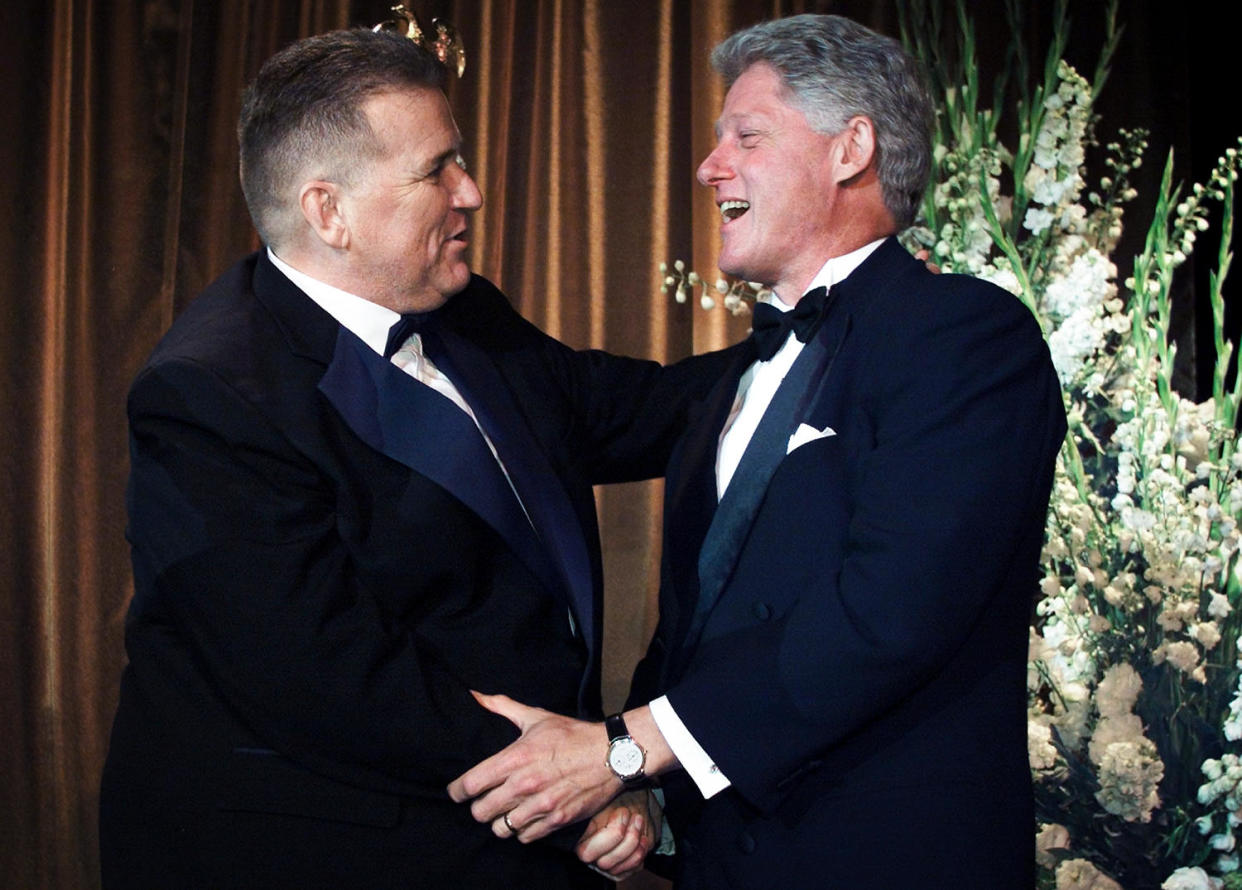Longtime LGBTQ activist David Mixner dies at 77
LGBTQ activist and political adviser David Mixner, perhaps best known for challenging then-President Bill Clinton’s “don’t ask, don’t tell” policy, died Monday, a close friend confirmed. He was 77.
“A champion for equality, longtime activist David Mixner’s unwavering voice spanned decades,” Kelley Robinson, president of the Human Rights Campaign, the nation’s largest LGBTQ advocacy group, wrote on X. “From challenging discriminatory policies to influencing presidential campaigns, his work paved the way for a new political reality and will inspire generations.”
While Mixner spent decades advocating for LGBTQ rights, he’s probably best known for challenging Clinton — for whom he served as a campaign adviser — on the controversial “don’t ask, don’t tell” policy.
Mixner was the first openly gay man to hold a public-facing role on a presidential campaign, according to the LGBTQ+ Victory Fund, a nonpartisan nonprofit advocacy group that Mixner co-founded in 1991. However, their relationship soured after Clinton enacted the “don’t ask, don’t tell” policy, which barred gay men and lesbians from serving openly in the military, in 1993.
Mixner joined about 100 activists to protest “don’t ask, don’t tell” outside the White House that year, leading to his high-profile arrest.
“I just have to do what is right,” he told The Washington Post at the time. “I have buried too many friends to compromise. I owe it to them. I owe it to my partner, who died four years ago.”
“He doesn’t have a voice anymore, and I must speak for him,” Mixner added. “That’s what this is all about.”
The controversial policy would remain in place for another 17 years, until Congress and President Barack Obama repealed it in 2011.

Mixner rose to prominence for working with Clinton, but his political activism long predated the former president.
As a teenager he volunteered for John F. Kennedy’s presidential campaign, according to an interview he gave to LGBTQ magazine Metro Weekly in 2004. Mixner and his partner, Peter Scott, were among those who led the opposition to a 1978 California ballot measure — Proposition 6, also known as the Briggs Initiative — which would have barred gay men and lesbians from teaching in the state’s public schools. Mixner said in the same interview that he met with Ronald Reagan, who had been governor from 1967-1975, and pushed him to publicly oppose the ballot measure.
“A closeted gay Republican got us a meeting, at great risk to his own political self,” Mixner told the magazine at the time, referring to his meeting with Reagan. “It was a delightful meeting — I was treated in that meeting with more respect than almost any other elected official I’ve ever met with.”
Voters later rejected the ballot measure.
Mixner later became a prominent AIDS activist and was reportedly among dozens of protesters arrested outside of the White House in 1986, lambasting the Reagan administration’s response to the epidemic.
“David gave his time, energy and money to building a new political reality in America — having the foresight and dedication to see it through even in the most difficult of times,” Annise Parker, president and CEO of the LGBTQ+ Victory Fund, which aims to elect LGBTQ people to public office, said in a statement. “His legacy is the thousands of out LGBTQ+ people who now serve in elected and appointed positions all across the nation — and the tens of thousands more to come.”
Many current LGBTQ public officials saluted Mixner following the news of his death, with Rep. Ritchie Torres, D-N.Y., calling Mixner “one of the greatest LGBTQ Civil Rights leaders of his generation.”
“He leaves behind a fundamentally fairer world for LGBTQ Americans than the one he knew for most of his life,” Torres said in a statement. “David Mixner was a moral giant on whose shoulders we forever stand.”
New York state Sen. Brad Hoylman-Sigal called Mixner a “civil rights hero whose efforts improved the lives of millions of LGBTQ Americans.”
“There are countless LGBTQ elected officials who counted David as a friend and role model, myself included,” Hoylman-Sigal said in a statement posted on X.
White House Press Secretary Karine Jean-Pierre honored Mixner during a White House press briefing Tuesday.
"Perhaps most importantly, he was deeply dedicated to mentoring the next generation of LGBTQ+ leaders fighting to create a better world," Jean-Pierre, who is the first Black and first openly LGBTQ White House press secretary, said. “Those of us doing this work today, including myself, owe him a debt of gratitude.”
It appears that up until the day he died, Mixner was plugged into national politics. On Sunday, he posted a meme responding to Sen. Katie Britt of Alabama’s GOP response to President Joe Biden’s State of the Union address last week, which drew widespread criticism, even inspiring a “Saturday Night Live” skit. One of his last Facebook posts on Sunday simply stated: “Sleepy Joe, my a--.”
